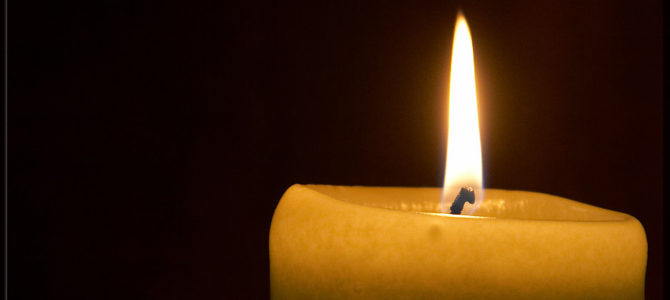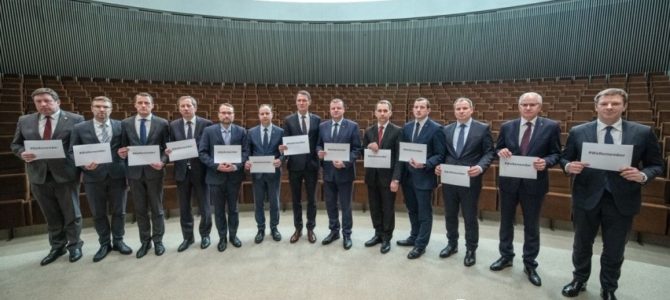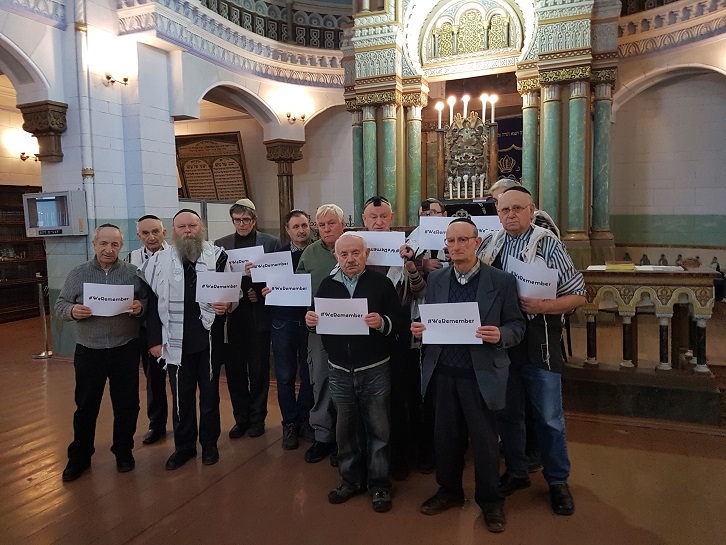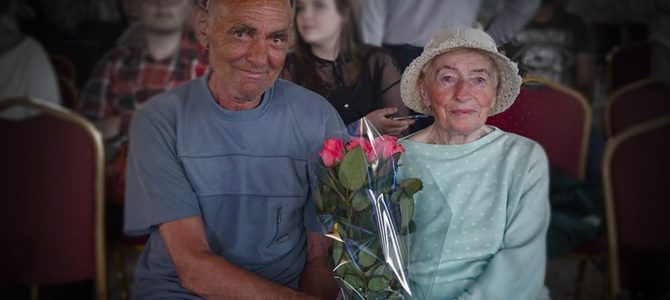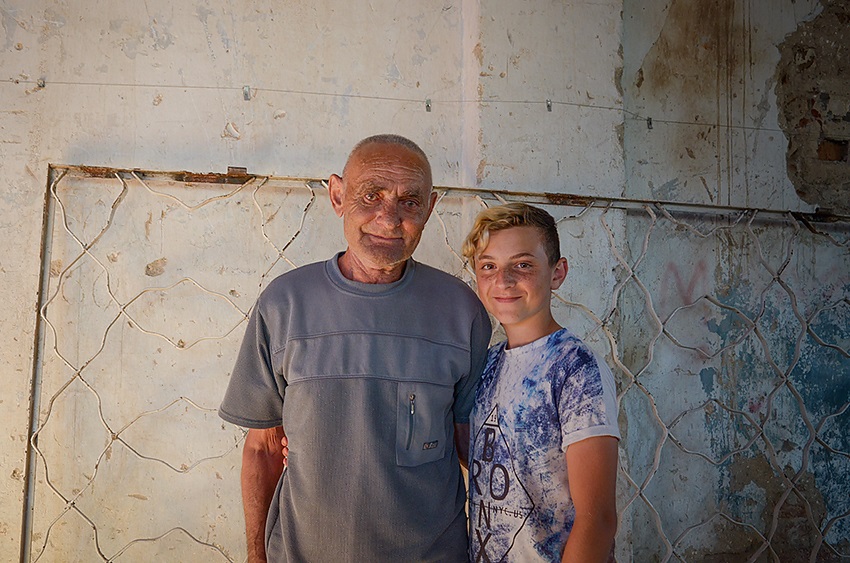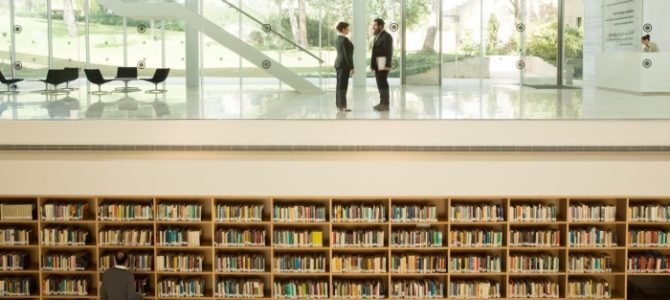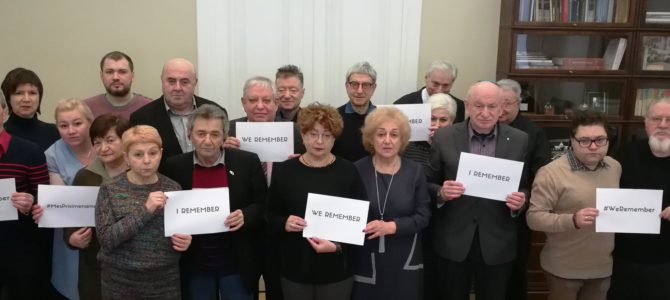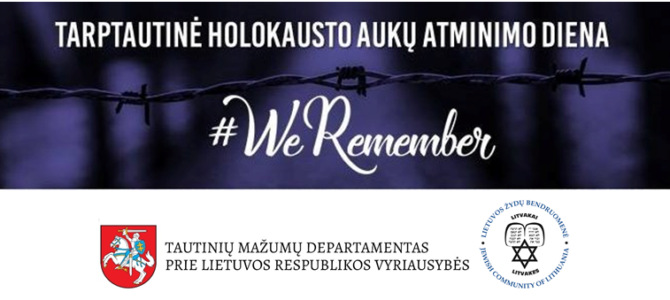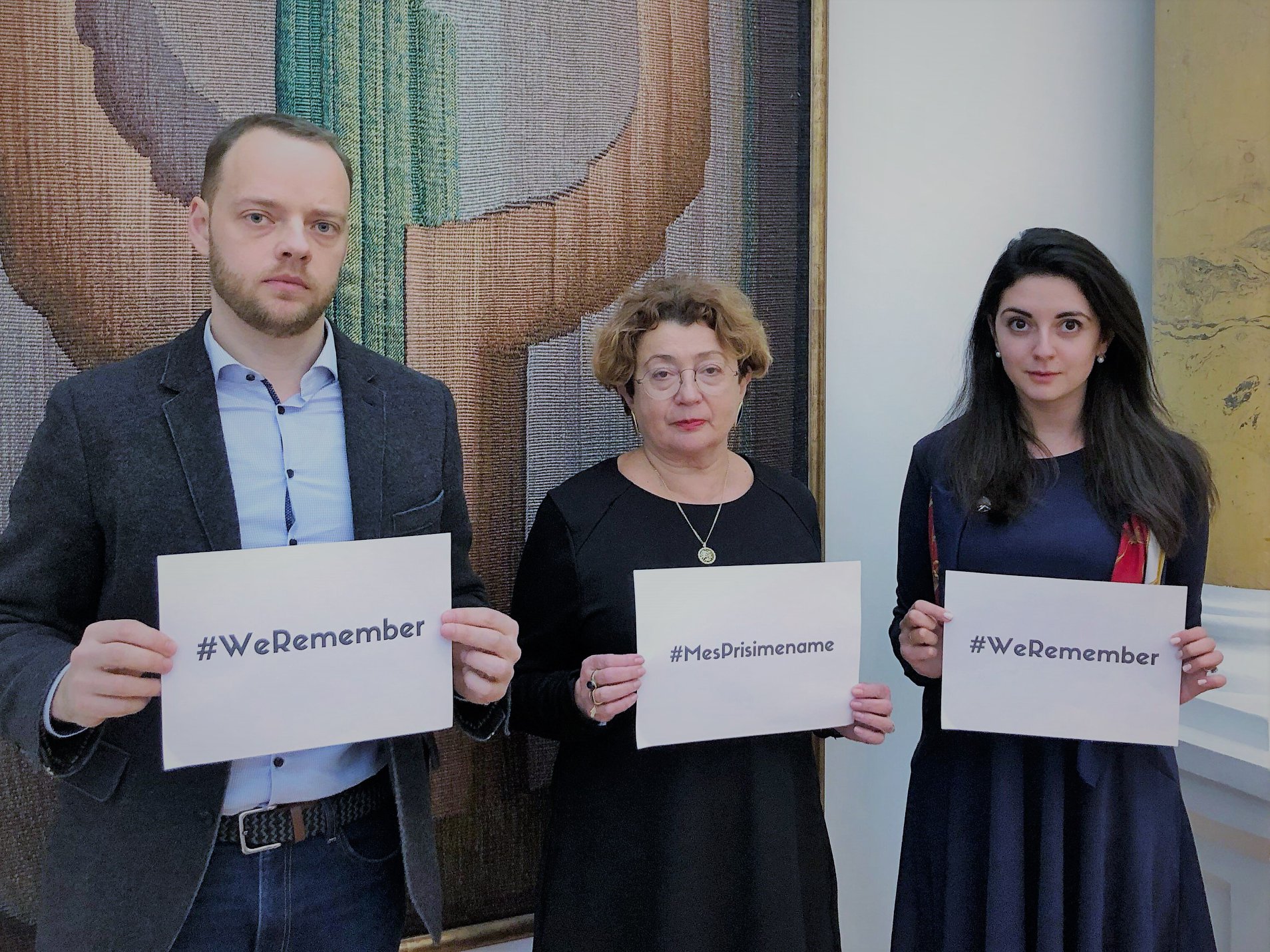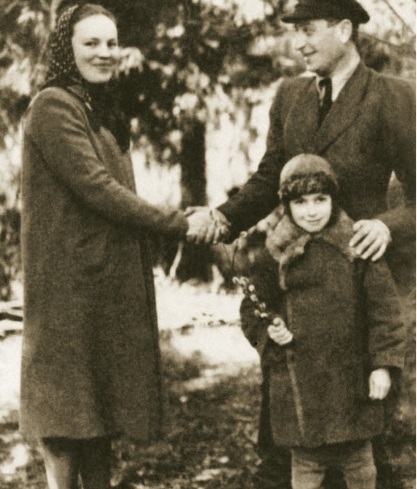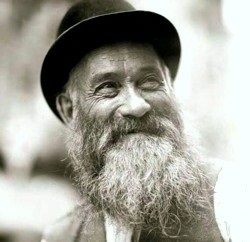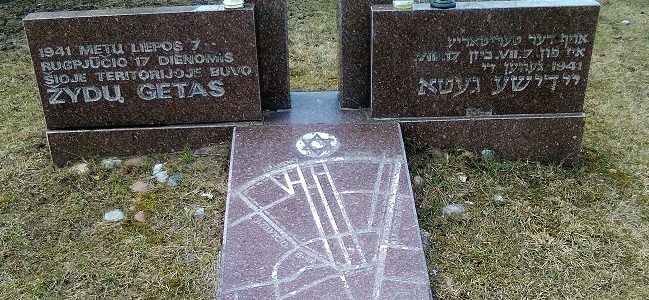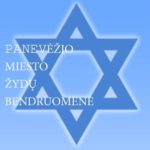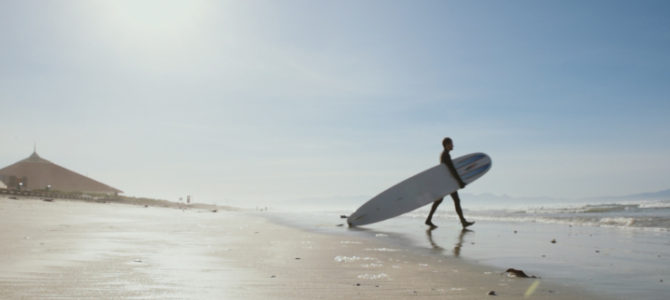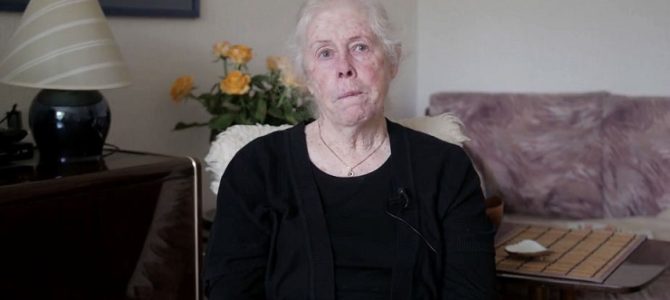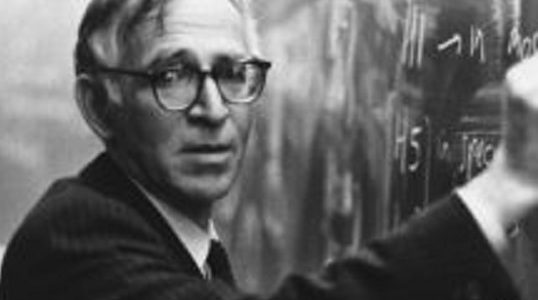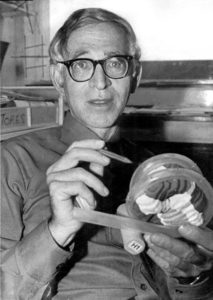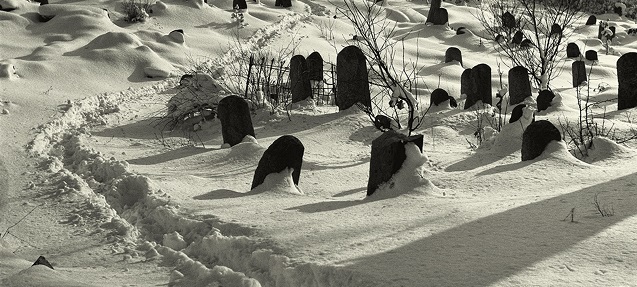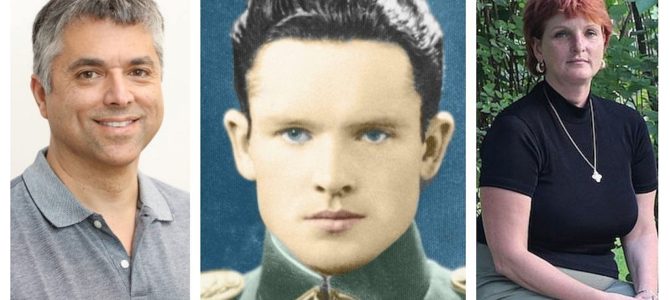Holocaust survivors remember the painful loss of their families on this day and usually go to the local Jewish community center or synagogue to light a candle in memory of the victims, calling them by name. The ceremony is often bitter and moving. Mina Frišman talked about it with us.
Mina Frišman was a child during the Holocaust and always lights a large candle in memory of her murdered family, recalling the Kaunas ghetto and the Stutthof concentration camp. When the Holocaust began in Lithuania, Mina belonged to a large family with six children. Both her parents worked at the Inkaras factory in Kaunas. She and her family along with all Jews in Kaunas were forced into the ghetto in the Slobodka neighborhood there and made to wear a Star of David. She’s now 86 but still remembers the transport of Jews to Stutthof.
“This year I’ll light a candle remembering the Stutthof concentration camp where my family and I were sent from the Kaunas ghetto. I remember my twin sister whom I loved very much. My sister died in the concentration camp. They murdered my brother and father there. I light a candle in memory of all my family members who were so dear to me, for my father, for my mother, for my brother. In my family there were five sisters and one brother. I was 9 when I ended up in the Kaunas ghetto. Before the war my father supported the family. He worked at the Inkaras factory designing models of shoes. My mother sewed leather at the same factory. They separated the men and women at Stutthof, and they separated the children and murdered them in the gas chamber. My littlest sister died there. Mother was with us. We worked hard and we starved. They gave us a metal bowl and poured what they called soup into it with a small piece of bread. My mother, sisters and I lived to see liberation.


